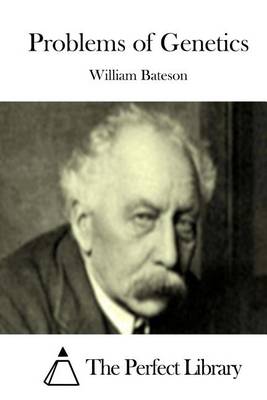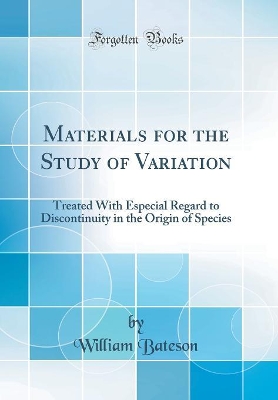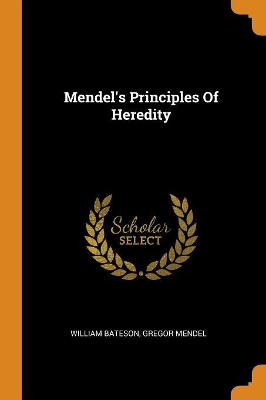Cambridge Library Collection - Darwin, Evolution and Genetics
3 total works
A key figure in the field of evolutionary biology, William Bateson (1861-1926) revived Mendelian methods of analysis to develop Darwin's theory of evolution, thereby pioneering the study of genetics. In these lectures, published at Yale in 1913, Bateson systematically chronicles the era's conflicting and developing theories on taxonomy, speciation, variation and hybridisation, and includes his own thoughts on continuous and discontinuous variation and its causes. Drawing on the comparative physiology and anatomy of species that he knew from his wide experience, citing detailed examples from across the taxonomic kingdoms, Bateson brings to life this exciting time in biology. Because the theories central to the modern understanding of genetics, heredity and evolution were formed at this time, this work remains valuable and relevant to students of biology and the history of science.
"Bateson had the idiosyncratic character's ability to see things that others missed and insist on them."--'New Scientist.' 'Foundations of Natural History.
William Bateson (1861-1926) began his academic career working on variation in animals in the light of evolutionary theory. He was inspired by the rediscovery in 1900 of the 1860s work on plant hybridisation by the Austrian monk Gregor Mendel (included here as an appendix) to pursue further experimental work in what he named 'genetics'. He realised that Mendel's results could help to solve difficult biological questions and controversies and to challenge the status quo in evolutionary studies. Annoyed by the 'apathetic' stance of his evolutionist colleagues, and incensed by a scathing critique of Mendel by the Oxford professor Raphael Weldon, Bateson incorporated an English translation of Mendel's work into this 1902 book along with a defence of Mendel's statistical experiments and the principles of heredity derived from them. His book is an impassioned appeal for scientists to adopt this 'brilliant method' which he felt could revolutionise both scholarship and industry.


